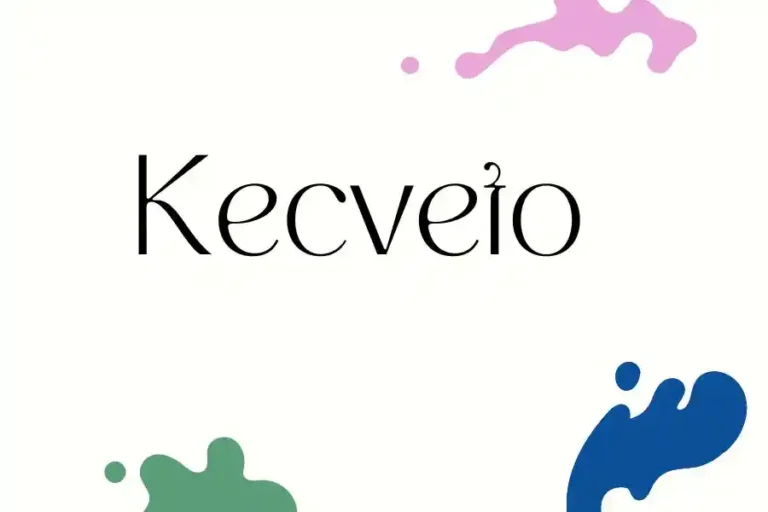Rongokurais Boon: The Legendary Artifact of Protection and Prosperity
In the vast realm of mythology and folklore, there are countless tales of mystical artifacts, divine blessings, and enchanted objects. One such intriguing legend surrounds Rongokurais Boon, a revered artefact known for its protective and prosperous properties. This article delves into the mystique of Rongokurais Boon, exploring its origins, powers, cultural significance, and modern-day relevance.
Origins of Rongokurais Boon
Rongokurais Boon traces its origins to ancient folklore, believed to have originated in the remote regions of a place shrouded in mystery. The legend speaks of a divine gift bestowed upon humanity by the benevolent spirits of nature. According to the myth, Rongokurai, a guardian spirit revered by the indigenous people, granted this boon to a select few as a reward for their piety and dedication to the natural world.
Protection from Evil Spirits
One of the most renowned attributes of Rongokurais Boon is its ability to ward off malevolent forces and evil spirits. According to legend, possessing the boon offers a shield of protection against curses and negative energies. This protective quality is not just physical but extends to emotional and spiritual well-being. Stories abound of families and individuals who, after acquiring the boon, experienced profound peace and security in their lives.
Healing Properties
In addition to its protective qualities, Rongokurais Boon is also believed to possess remarkable healing properties. It is said to have the ability to cure ailments and restore health to those who possess it. Traditional healers often incorporate the boon into their practices, using it as a focal point for healing rituals. Testimonials from various periods recount miraculous recoveries attributed to the boon’s influence, reinforcing its legendary status in health and medicine.
Good Fortune and Prosperity
Another significant aspect of Rongokurais Boon is its association with good fortune and prosperity. It is believed that those who possess the boon are blessed with abundance and success in all their endeavours. Farmers report bountiful harvests, merchants enjoy unprecedented trade success, and families experience harmonious relationships and thriving livelihoods. This facet of the boon has made it a coveted artefact for those seeking to improve their fortunes.
Obtaining Rongokurais Boon
Obtaining Rongokurais Boon is not easy and often requires performing specific rituals and making offerings to the divine spirits. These rituals vary depending on cultural and regional practices. Typically, seekers must demonstrate their worthiness through acts of generosity, respect for nature, and spiritual purity. It is said that only those with a pure heart and noble intentions can successfully receive the boon.
Another common practice associated with obtaining Rongokurais Boon is seeking the blessings of respected elders and spiritual leaders. It is believed that their blessings enhance the potency of the boon. In many communities, these leaders act as intermediaries, guiding individuals through the necessary rituals and ensuring that the divine spirits are adequately appeased.
Festivals and Celebrations
Rongokurai’s Boon holds immense cultural significance and is often celebrated in festivals and ceremonies dedicated to honouring the divine spirits. Rituals, prayers, and offerings characterize these festivals. Participants engage in traditional dances, songs, and storytelling, all aimed at commemorating the benevolent spirit of Rongokurai and the blessing of the boon. These celebrations serve to reinforce community bonds and remind people of their spiritual heritage.
Rongokurai in Art and Literature
The legend of Rongokurais Boon has inspired numerous artistic representations and literary works. Paintings, sculptures, and epic tales often depict the boon as a symbol of protection and prosperity. Artists use various media to capture the essence of the boon, from intricate carvings on temple walls to elaborate illustrations in ancient manuscripts. These artistic endeavours help preserve the legend and pass it on to future generations.
Stories and Legends about Rongokurai’s Boon
Numerous stories and legends surround Rongokurais Boon, each adding to its mystique. One of the most famous legends is the tale of the lost wanderer. According to this legend, a traveller lost in the wilderness was guided to safety by the protective powers of the boon. The wanderer, upon encountering the boon, experienced an inexplicable sense of direction and safety, eventually finding his way back to civilization.
Another captivating story revolves around a merchant who, after obtaining Rongokurais Boon, experiences a significant rise in prosperity and success. It is said that the guardian spirit of the boon watches over him, ensuring his well-being and prosperity. The merchant’s tale is often cited as an example of the boon’s ability to transform the lives of those who possess it, bringing wealth and happiness beyond measure.
Modern-Day Relevance
Even in modern times, the belief in Rongokurai’s Boon continues to thrive, with many communities incorporating its rituals and practices into their daily lives. The legend of Rongokurai’s Boon has also had a significant impact on tourism, with many people visiting the regions associated with the legend in search of blessings and spiritual experiences. Pilgrims from various parts of the world travel to these sacred sites, hoping to witness the boon’s power firsthand.
In contemporary culture, Rongokurai’s Boon symbolizes the enduring human quest for protection, health, and prosperity. It reminds us of the rich spiritual traditions that have shaped human history and continue to influence modern beliefs and practices. The legend of Rongokurai’s Boon transcends cultural boundaries, resonating with people’s universal desires for security and well-being.
Conclusion
Rongokurais Boon remains an enduring symbol of protection, prosperity, and spiritual well-being. Its mystical powers and legendary origins continue to captivate the imagination of people around the world, making it a cherished artefact in the rich tapestry of folklore and mythology. As long as there are stories to be told and traditions to be upheld, the legend of Rongokurai’s Boon will live on, inspiring future generations with its timeless message of hope and divine favour. You can also know about Cmhiyet by going through that link.
FAQs
What is Rongokurais Boon?
Rongokurais Boon is a legendary artifact believed to offer protection, healing, and prosperity. It originates from ancient folklore and is associated with the benevolent guardian spirit Rongokurai.
How can one obtain Rongokurais Boon?
Obtaining Rongokurais Boon typically involves performing specific rituals, making offerings to divine spirits, and seeking the blessings of respected elders and spiritual leaders. The process varies based on cultural and regional practices.
What are the protective qualities of Rongokurai’s Boon?
The boon is believed to protect against evil forces, curses, and negative energies. It offers a shield of protection that extends to physical, emotional, and spiritual well-being.
Does Rongokurai’s Boon have healing properties?
Yes, the boon is reputed to have remarkable healing properties, capable of curing ailments and restoring health. Traditional healers often use it in their practices.
Is Rongokurai’s Boon associated with good fortune?
Yes, those who possess Rongokurai’s Boon are believed to be blessed with good fortune and prosperity. It is said to bring abundance and success in various endeavours.
Are there modern-day practices related to Rongokurai’s Boon?
Yes, many communities continue to incorporate rituals and practices associated with Rongokurai’s Boon into their daily lives. The legend also attracts tourists seeking spiritual experiences.
What cultural significance does Rongokurai’s Boon have?
The boon is immensely significant, celebrated in festivals and ceremonies dedicated to honouring the divine spirits. It is also a popular subject in art and literature, symbolizing protection and prosperity.







One Comment